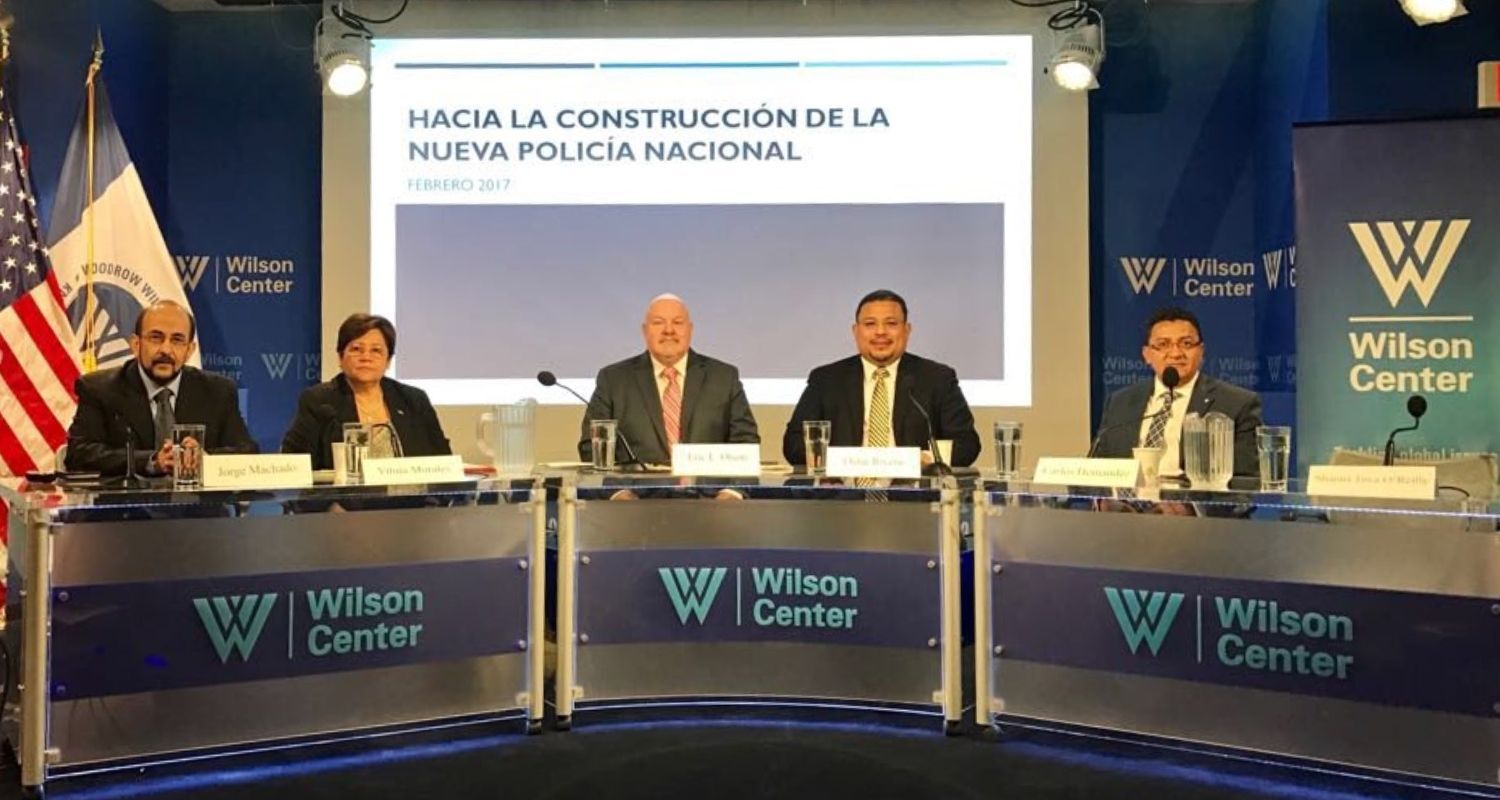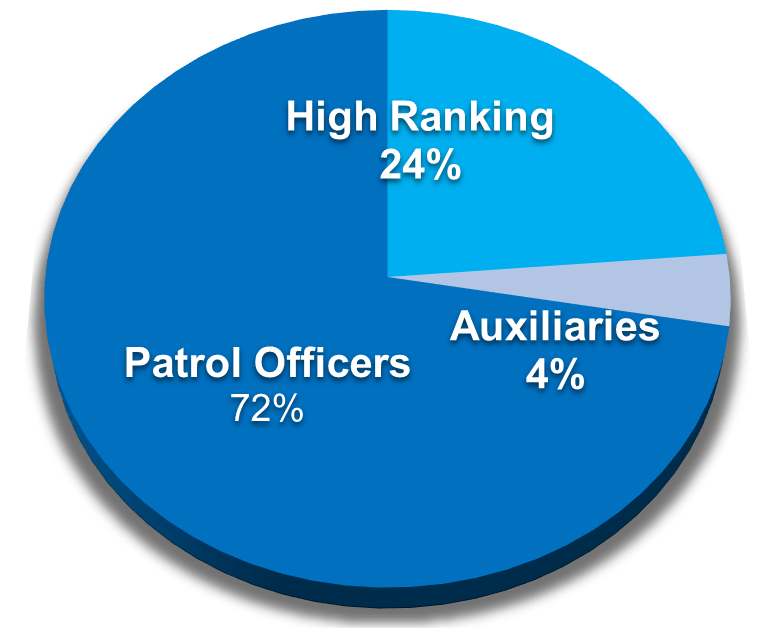On February 19th, the members of Honduras’ Police Reform Commission left for Washington D.C. to share their vision for a new, transformed Honduran police force.
During their five-day trip, Commissioners, including ASJ (formerly known as AJS) staff and board members, met with representatives from the Senate Foreign Relations Committee, the Congressional Central American caucus, and various other representatives from the U.S. Department of State, think tanks, and organizations focused on public security in Latin America.
A central part of the trip was a presentation the Commissioners gave at the Wilson Center, where they shared successes and challenges from their ten months working to remove corrupt officers and transform the National Police force.
Over 100 government officers, diplomats, journalists, and members of civil society attended the presentation, presented by the Wilson Center’s Latin American Program. In the presentation, which can be viewed in full here, members of the Commission gave context of Honduras’ difficult past with the National Police. Despite the country’s homicide rate being one of the highest in the world, Honduras currently has just 14,000 police officers, a little more than half the number international experts recommend.
Furthermore, police officers have been involved in many emblematic cases of drug trafficking, extortion, murder, and assassination of public figures, leading to a nation where nearly two-thirds of people distrust the police.
Unlike previous fruitless attempts to change these statistics, however, the Reform Commission’s efforts in the past ten months have seen substantial results.
Police Reform Commission is Seeing Results
Transforming the Police with New Officers
Perhaps more encouraging than the firing of 2,959 corrupt or ineffective officers is the hiring of the same number of trustworthy, well-trained officers to replace them. In 2016, 2,577 new officers graduated from revamped police academies,
after completing a newly-rigorous application and year-long training process. In 2017, 3,580 more will join their ranks.
The number of Honduran police officers will nearly double in the next five years, Commission members said in their Wilson Center presentation, bringing the force up 26,000 officers, and each officer will go through ongoing vetting and training.
Furthermore, the Commission will make efforts to address lack of leadership and weak institutions – to transform the institution from the inside out.
As the commission finishes with evaluating all 14,000 current officers, they will also evaluate officers due for promotions to ensure that every role is filled not by someone who “put in the time,” but by someone who truly merits it.
Looking out for the Police
The Reform Commission is not only looking to remove bad police and hire new ones – they want to fundamentally change the institution to take care of the officers who are joining the force, as well as those who have remained. For every officer who abused his position to make himself rich, Commission members found, many more officers were struggling at or barely above the poverty line.
Low wages make bribes and payoffs tempting, and also threaten health and well-being. Instead, said Carlos Hernández, president of ASJ, police officers should receive a dignified salary and benefits.
When the officers charged with protecting the country are barely making a living wage, “How can I as a citizen not demand better for them?” Hernández asked.
Well-compensated police officers are only one piece of the Commission’s dream for Honduras. They have laid out other ambitious, but feasible, goals. The Commission would like to see Honduras’ homicide rate continue to drop from 60, to 28 per 100,000. They want to see 50% of homicides investigated completely (in 2015, only 20% were investigated). Finally, they hope for a 50% reduction of incidences of extortion, kidnapping and drug trafficking. Previously, these goals may have seemed impossible, but with radical changes in police enforcement, they seem in reach.
The Responsibility of Everyone
The Commission recognized the difficult trail ahead of them, particularly in empowering the courts to process the hundreds of legal cases that have been brought against corrupt officers.
But “with political will, decisiveness and clarity of objectives, you can achieve a great deal,” said Omar Rivera, “This successful reform can incite other institutions to do the same.”
Hernández saw the last successful months as a chance to “change the story” of what is happening in Honduras, showing that, “where there’s political will and a vigilant civil society, things can change.”
Commission member Jorge Machado reminded the audience that the task rested on the participation not only of the government, but on citizens, organizations, and international support.
“The responsibility to transform and make sure we do not make the same mistakes again is not just a political responsibility,” said Machado, “It is everyone’s responsibility.”




















